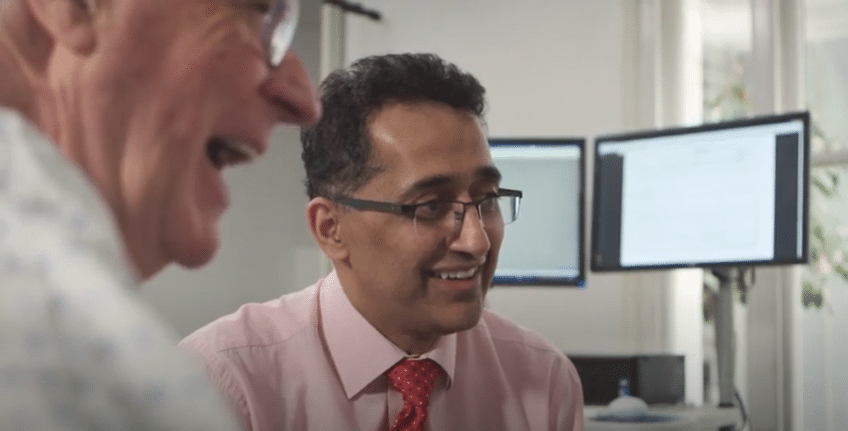
Our cardiologists are at the cutting edge of their fields of interest. They are active researchers and are asked to lecture locally and internationally. See below for a selection of their research:
Abeles RD, Mullish BH, Forlano R, Kimhofer T, Adler M, Tzallas A, Giannakeas N, Yee M, Mayet J, et al.
Derivation and validation of a cardiovascular risk score for prediction of major acute cardiovascular events in non-alcoholic fatty liver disease; the importance of an elevated mean platelet volume.
Aliment Pharmacol Ther. 2019 Apr;49(8):1077-1085. doi: 10.1111/apt.15192. Epub 2019 Mar 5.
Sharp AJ, Sohaib SMA, Shun-Shin MJ, Pabari P, Willson K, Rajkumar C, Hughes AD, Kanagaratnam P, Mayet J, et al.
Improving haemodynamic optimization of cardiac resynchronization therapy for heart failure.
Physiol Meas. 2019 May 1;40(4):04NT01. doi: 10.1088/1361-6579/ab152c.
Seligman H, Shun-Shin MJ, Vasireddy A, Cook C, Ahmad YY, Howard J, Sen S, Al-Lamee R, Nijjer S, Chamie D, Davies J, Mayet J, et al.
Fractional flow reserve derived from microcatheters versus standard pressure wires: a stenosis-level meta-analysis.
Open Heart. 2019 Mar 25;6(1):e000971. doi: 10.1136/openhrt-2018-000971. eCollection 2019.
Cook CM, Ahmad Y, Howard JP, Shun-Shin MJ, Sethi A, Clesham GJ, Tang KH, Nijjer SS, Kelly PA, Davies JR, Malik IS, Kaprielian R, Mikhail G, Petraco R, Warisawa T, Al-Janabi F, Karamasis GV, Mohdnazri S, Gamma R, de Waard GA, Al-Lamee R, Keeble TR, Mayet J, et al.
Association Between Physiological Stenosis Severity and Angina-Limited Exercise Time in Patients With Stable Coronary Artery Disease.
JAMA Cardiol. 2019 Jun 1;4(6):569-574. doi: 10.1001/jamacardio.2019.1139.
Al-Lamee RK, Shun-Shin MJ, Howard JP, Nowbar AN, Rajkumar C, Thompson D, Sen S, Nijjer S, Petraco R, Davies J, Keeble T, Tang K, Malik I, Bual N, Cook C, Ahmad Y, Seligman H, Sharp ASP, Gerber R, Talwar S, Assomull R, Cole G, Keenan NG, Kanaganayagam G, Sehmi J, Wensel R, Harrell FE Jr, Mayet J, et al.
Dobutamine Stress Echocardiography Ischemia as a Predictor of the Placebo-Controlled Efficacy of Percutaneous Coronary Intervention in Stable Coronary Artery Disease: The Stress Echocardiography-Stratified Analysis of ORBITA.
Circulation. 2019 Dec 10;140(24):1971-1980. doi: 10.1161/CIRCULATIONAHA.119.042918. Epub 2019 Nov 11.
Kaura A, Panoulas V, Glampson B, Davies J, Mulla A, Woods K, Omigie J, Shah AD, Channon KM, Weber JN, Thursz MR, Elliott P, Hemingway H, Williams B, Asselbergs FW, O’Sullivan M, Kharbanda R, Lord GM, Melikian N, Patel RS, Perera D, Shah AM, Francis DP, Mayet J.
Association of troponin level and age with mortality in 250 000 patients: cohort study across five UK acute care centres.
BMJ. 2019 Nov 20;367:l6055. doi: 10.1136/bmj.l6055.

